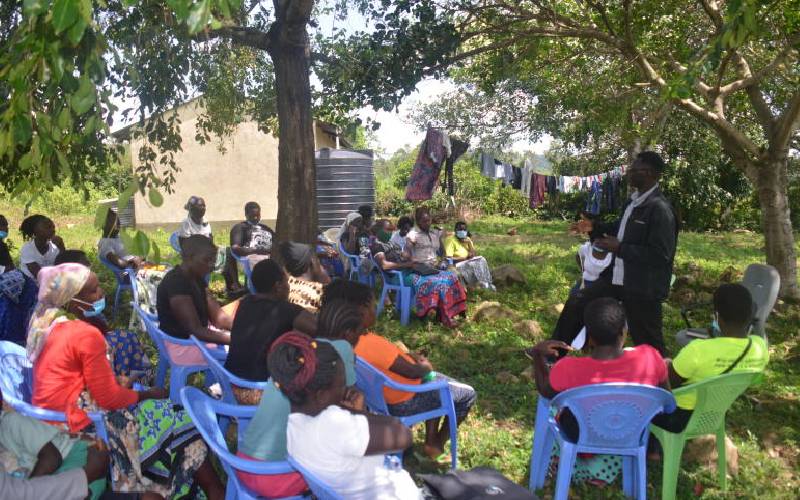×
The Standard e-Paper
Smart Minds Choose Us

Gender-based violence awareness in Migori county. [Courtesy]
While counting the incidents she has witnessed, Florence Imondo narrates how she had met with women at Angengo village who have been abused.